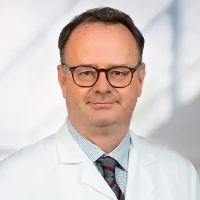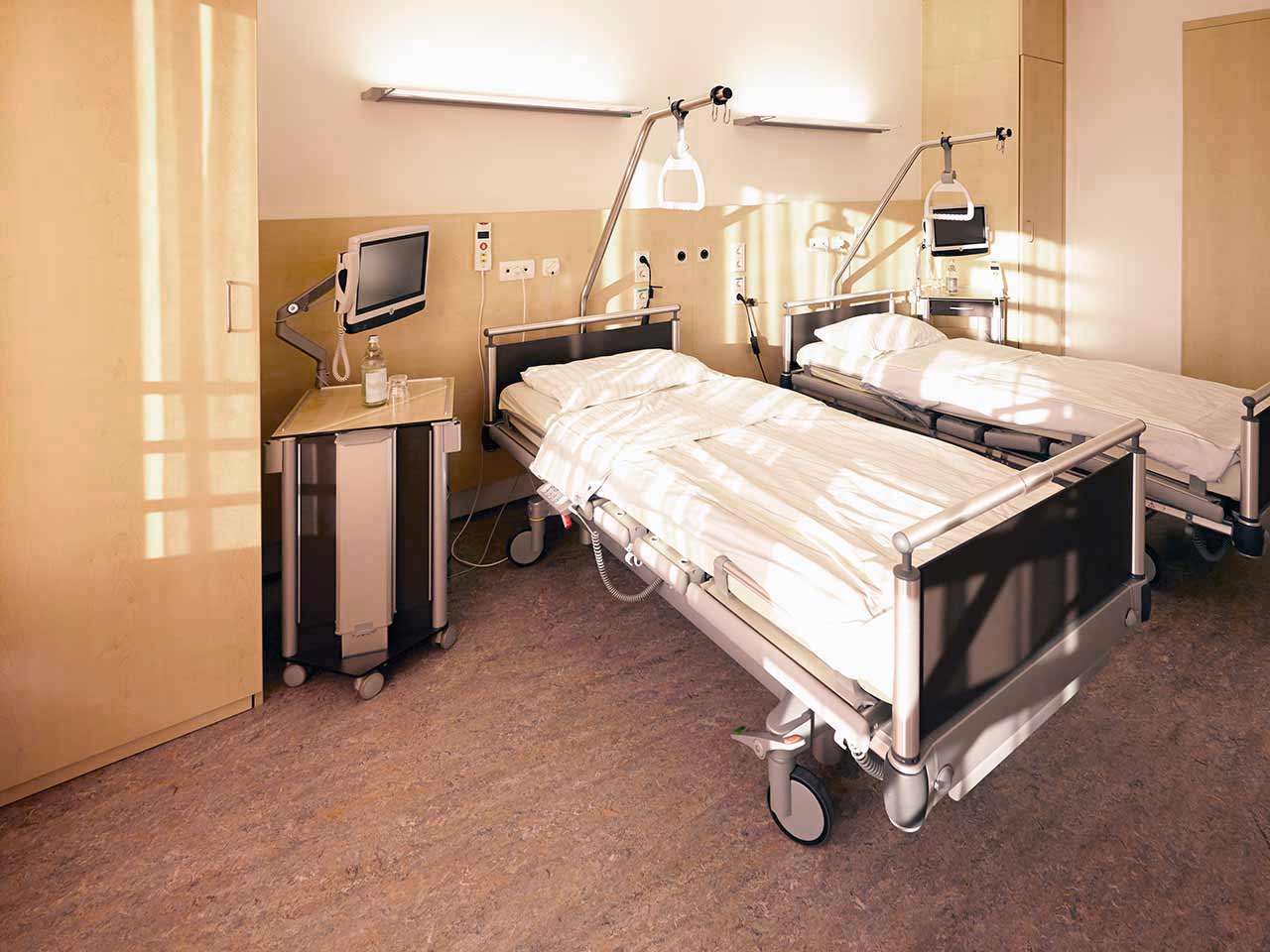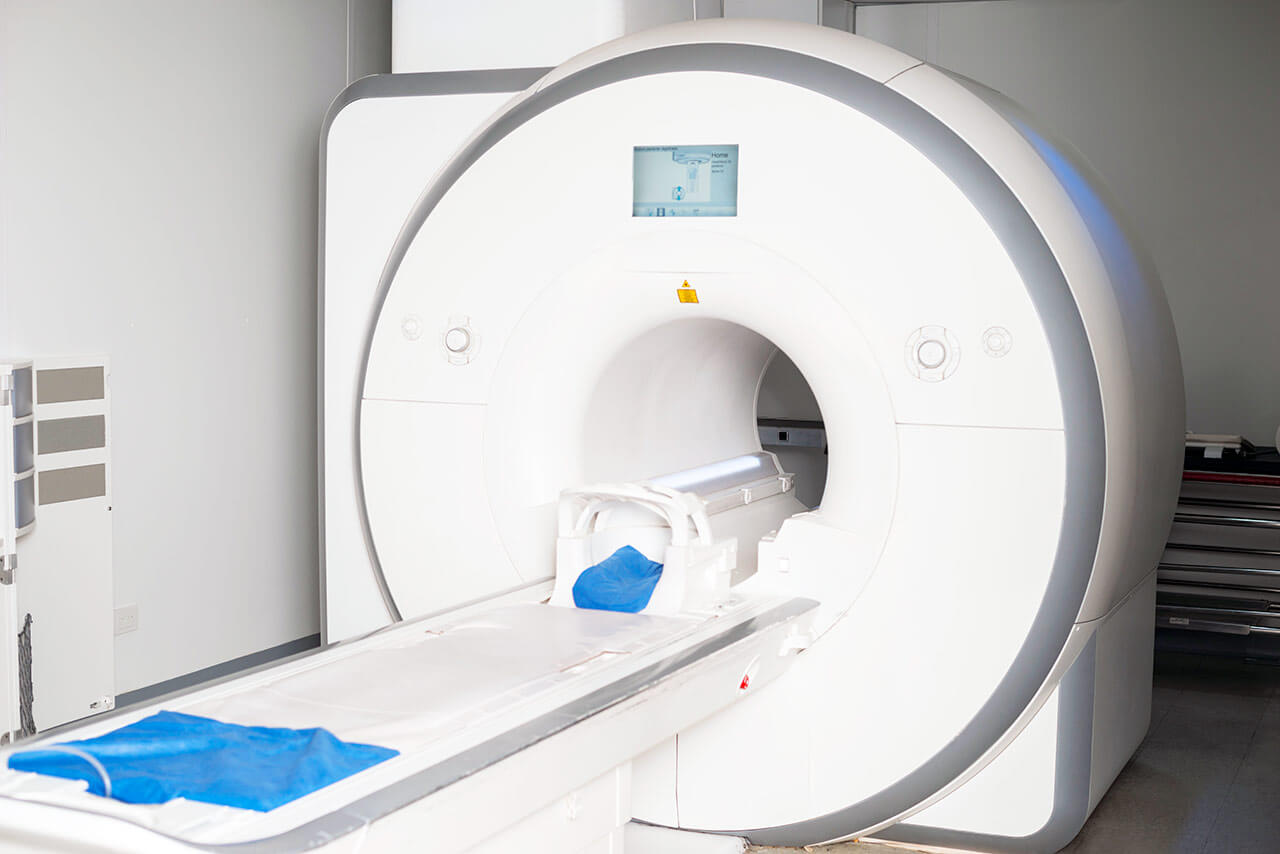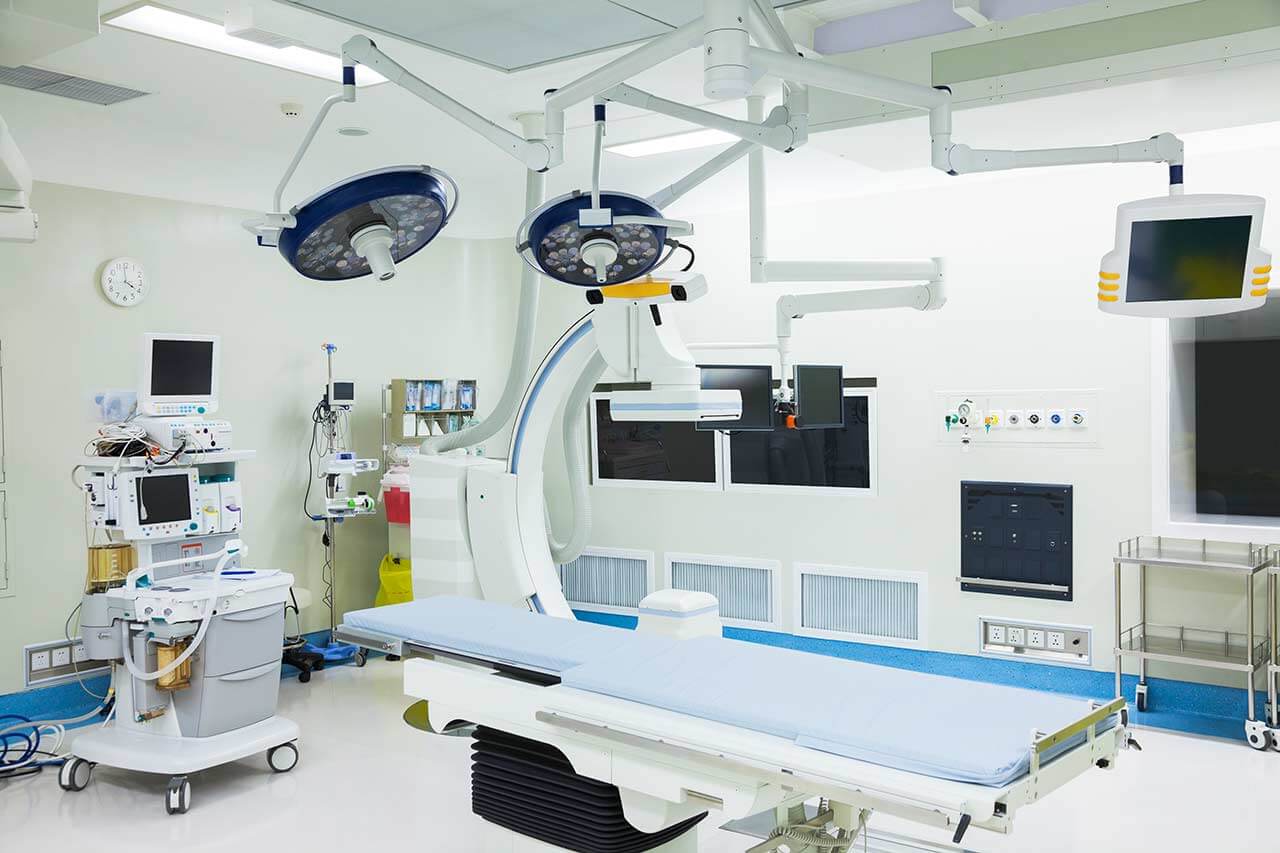
The program includes:
- Initial presentation in the clinic
- clinical history taking
- review of medical records
- physical examination
- urological examination
- laboratory tests:
- complete blood count
- general urine analysis
- biochemical analysis of blood
- inflammation indicators (CRP, ESR)
- indicators blood coagulation
- ultrasound of the urogenital system
- preoperative care
- abscess resection
- symptomatic treatment
- control examinations
- the cost of essential medicines and materials
- nursing services
- full hospital accommodation
- explanation of future recommendations
Required documents
- Medical records
- Scrotal ultrasound (if available)
Service
You may also book:
 BookingHealth Price from:
BookingHealth Price from:
About the department
The Department of Urology at the Nuremberg Hospital offers the full range of modern diagnostics and treatment for diseases of the kidneys, bladder, and urethra in men and women and also specializes in the treatment of pathologies and malformations of the male reproductive system. One of the key areas of the department's clinical practice is prostate cancer treatment. This oncological disease is treated at a specialized center that is certified in accordance with the standards of the German Cancer Society (DKG). The department's urologists demonstrate exceptional professional skills in robot-assisted surgery using the state-of-the-art da Vinci Xi surgical system. The department also has advanced laser equipment for the treatment of benign prostatic hyperplasia, including a thulium laser, a holmium laser, and a Greenlight laser. The medical facility provides effective treatment for patients with urinary incontinence and kidney stone disease. More than 3,950 inpatients and about 4,000 outpatients are treated in the department every year. The health of patients is in the safe hands of a team of highly qualified experts, including 26 highly specialized physicians and 35 nursing staff members. The Head Physician of the department is Prof. Dr. med. Sascha Pahernik.
The department regularly admits patients with prostate cancer, which is the most common type of oncological disease among men. If cancer is suspected, patients undergo laboratory and imaging tests, including an MRI scan and a fusion biopsy. Should prostate cancer be confirmed, the department's urologists, together with specialists from related disciplines, will start elaborating a treatment regimen. The department's special offer in this field is the resection of malignant prostate tumors using the modern da Vinci Xi surgical system. Robot-assisted surgery is highly effective and is also minimally traumatic. It is extremely important that the department's urologists manage to preserve potency and prevent urinary incontinence after such interventions so that the patient will have a full life following the operation. The department also successfully performs HIFU ablation for prostate cancer. This treatment method is indicated in cases where it is impossible to perform a radical prostatectomy. A treatment regimen is completed by conservative treatment methods such as chemotherapy, hormone therapy, immunotherapy, radiation therapy, etc.
The department's urologists are deservedly proud of their rich experience in the treatment of urinary incontinence in women and men. This pathology is characterized by an uncontrollable urine discharge from the urethra, which causes discomfort and affects the quality of life. Urinary incontinence is more common in women. The main diagnostic methods for suspected urinary incontinence include ultrasound scans, urodynamic tests, microbiological urine testing, and cystoscopy. In the early stages of the disease, the department's doctors use only conservative therapies, but in complex cases, they are ineffective, so patients are recommended for surgical intervention. In cases of urge incontinence, the department's specialists inject Botox into the bladder muscle or perform innovative EMDA therapy (intravesical electromotive drug administration). Stress urinary incontinence is treated here with sling procedures, colposuspension, and pelvic floor reconstructive surgery. Male urinary incontinence is treated with the implantation of the AMS 800 artificial urinary sphincter.
The department treats patients with kidney stone disease. Patients with this pathology often suffer from renal colic, which is associated with intense pain. Other manifestations of the disease are painful urination, nausea and vomiting caused by pain, chills, high body temperature, general weakness, and fatigue. The department's doctors have at their disposal modern methods for the effective treatment of kidney stone disease, and the optimal type of therapy is prescribed individually based on the patient's clinical data. The most popular method of stone fragmentation is extracorporeal shockwave lithotripsy (ESWL). In addition, the department successfully performs ureterorenoscopy, percutaneous nephrolitholapaxy, and laser stone fragmentation. All of these techniques are sparing and do not require any skin incisions, thereby allowing patients to recover quickly and return to their usual way of life.
The department's clinical focuses include:
- Diagnostics and treatment of prostate cancer
- Prostatectomy, including using the da Vinci Xi surgical system
- HIFU ablation
- Chemotherapy
- Hormone therapy
- Immunotherapy
- External beam and internal radiation therapy (brachytherapy)
- Diagnostics and treatment of benign prostatic hyperplasia
- Transurethral resection of the prostate
- Laser vaporization with the Greenlight device
- Holmium and thulium laser enucleation of the prostate
- Prostate enucleation using the da Vinci Xi surgical system
- Rezum water vapor therapy (thermotherapy with water vapor)
- Prostate artery embolization
- Diagnostics and treatment of bladder diseases
- Bladder augmentation
- Bladder diverticulectomy
- Bladder fistula removal surgery
- Surgery for bladder neck stenosis
- Bladder neck resection
- Transurethral resection of bladder tumor
- Lithotripsy for bladder stones
- Bladder removal surgery, including using the da Vinci Xi surgical system
- Bladder tumor removal surgery using the very latest endoscopic laser technology
- Botulinum toxin injections into the bladder
- Foreign body removal from the bladder
- Diagnostics and treatment of kidney diseases
- Nephrectomy, including using the da Vinci Xi surgical system
- Nephrolithotomy
- Nephropexy
- Kidney cyst removal surgery
- Kidney fistula removal surgery
- Kidney stone extraction and fragmentation surgery
- Diagnostics and treatment of ureteral diseases
- Ureteral plastic repair
- Ureteral tumor resection
- Ureteral splinting
- Transrenal (antegrade) stent implantation
- Diagnostics and treatment of urethral diseases
- Urethral stricture bougienage or dissection
- Stenting for urethral stricture
- Reconstruction for urethral stricture
- Urethroplasty
- Diagnostics and treatment of urinary incontinence in men and women
- Botox injections into the bladder muscles
- Innovative EMDA therapy (intravesical electromotive drug administration)
- Sling interventions
- Colposuspension
- Pelvic floor reconstructive plastic surgery
- Implantation of an artificial bladder sphincter AMS 800 (for men)
- Diagnostics and treatment of erectile dysfunction
- Conservative therapy: drugs, vacuum therapy, ultrasound therapy, laser therapy, etc.
- Penile implant surgery
- Diagnostics and treatment of kidney stone disease
- Extracorporeal shockwave lithotripsy
- Ureterorenoscopy
- Percutaneous nephrolitholapaxy
- Laser stone fragmentation
- Diagnostics and treatment of testicular diseases
- Orchiectomy (surgical removal of testicles)
- Orchidopexy (surgery to fix the testicle with sutures for cryptorchidism)
- Diagnostics and treatment of other urologic diseases, other treatment methods
Curriculum vitae
Professional Career
- Since 02.2016 Head Physician of the Department of Urology at the Nuremberg Hospital.
- 02.2014 Theoretical basis of the specialty in Radiation Protection.
- 05.2012 Academic Exchange Program, Minimally Invasive Surgery in Urologic Oncology, Chinese PLA General Hospital, Beijing, People's Republic of China.
- 03.2012 Admission to carry out advanced training courses in drug tumor therapy.
- 07.2011 Academic Exchange Program, Minimally Invasive Surgery in Urologic Oncology, General Hospital (Chinese PLA General Hospital), Beijing, People's Republic of China.
- 01.2011 Deputy Head of the Department of Urology, University Hospital Heidelberg.
- 04.2010 Managing Senior Physician, Department of Urology, University Hospital Heidelberg.
- 06.2009 Additional qualification in Drug Tumor Therapy.
- 05.2009 Additional qualification in Andrology.
- 04.2009 Optional advanced training in Special Urologic Surgery.
- 01.2008 Senior Physician, Department of Urology, University Hospital Heidelberg.
- 10.2006 Board certification in Urology, Department of Urology, University Hospital Heidelberg.
- 03.2004 - 10.2006 Board certification in Urology, Department of Urology, University Hospital Mainz.
- 03.2004 Board certification in Urology.
- 09.1999 - 03.2004 Research Fellow in the Department of Urology, University Hospital Mainz.
- 01.1998 - 08.1999 Research Fellow at the Institute for Surgical Research, Grosshadern Hospital, Ludwig Maximilian University of Munich.
- 07.1996 - 12.1997 Internship, Department of Surgery and Institute for Surgical Research, Grosshadern Hospital, Ludwig Maximilian University of Munich.
Academic Training
- 12.2008 Habilitation in Urology, University of Heidelberg. Subject: "Stage-adapted therapy for local renal cell carcinoma".
- 01.2000 Thesis defense, Ludwig Maximilian University of Munich. Subject: "Human hepatocytes immobilized in 3D collagen matrix – an in vitro model for long-term studies of differentiated hepatocytes".
- 05.1990 - 07.1996 Medical studies, Ludwig Maximilian University of Munich.
Memberships in Professional Societies
- German Society of Urology.
- European Association of Urology.
- International Society of Urology.
- Chinese-German Urological Association.
- German Continence Society.
Positions in Funds and Organizations
- 2005 Board Member of the Else Kröner Fresenius Foundation.
- Since 2006 Member of the Scientific Commission in the Else Kröner Fresenius Foundation.
- Since 2014 Board Member of the Chinese-German Urological Association.
Photo of the doctor: (c) Klinikum Nürnberg
About hospital
According to the reputable Focus magazine, the Nuremberg Hospital ranks among the top German medical facilities!
The hospital is one of the largest, highly specialized medical centers in Europe and positions itself as the maximum care hospital. The healthcare facility is an academic hospital of the Paracelsus Medical University in Nuremberg. It houses 42 departments, institutes, and highly specialized centers focusing on various medical fields. All the hospital's employees work hand in hand for the benefit of their patients. The specialists strive to provide top-class medical care for every patient. Moreover, the medical team always shows a humane attitude and understanding towards the patient's life situation, making every effort to support them during the entire therapeutic process.
The total number of beds in the hospital is 2,233. The medical team consists of more than 8,400 employees, including many world-famous doctors and professors who had their clinical training at the best medical facilities in Germany, other European countries, and the USA. The hospital admits more than 100,000 inpatients and more than 170,000 outpatients annually. The number of patients who come to the hospital steadily increases every year, which is the best confirmation of its high standards and outstanding treatment results.
The cornerstone of successful clinical practice is state-of-the-art technical infrastructure. The hospital offers its patients innovative technologies such as the Da Vinci surgical system, devices for stereotactic procedures, intraoperative radiation therapy, angiography, PET CT devices, high-intensity focused ultrasound, 64-slice CT scanners, and other advanced medical devices. The combination of cutting-edge technical facilities and the high competence of the physicians allows for the provision of effective treatment even in the most complex cases.
The Nuremberg Hospital is undoubtedly one of Germany's leading medical facilities, where patients benefit from modern infrastructure, precise diagnostics, effective treatment, and responsive care.
Photo: (с) depositphotos
Accommodation in hospital
Patients rooms
The patients at the Nuremberg Hospital live in comfortable single and double rooms. Each patient room is equipped with an ensuite bathroom with a shower and a toilet. Standard rooms include an automatically adjustable bed, a bedside table, a wardrobe for storing clothes, a table and chairs for receiving visitors, a TV, and a radio. The hospital also offers Wi-Fi.
If desired, patients can live in enhanced-comfort rooms. Such patient rooms are more spacious, and their furnishings correspond to the level of an upscale hotel.
Meals and Menus
The patients at the hospital are offered tasty and balanced meals three times a day: breakfast, lunch, and dinner. The patients have a daily choice of three dishes for lunch and dinner, while breakfast is served as a buffet.
If, for some reason, you do not eat all foods, you will be offered an individual menu. Please inform the medical staff about your food preferences prior to treatment.
Further details
Standard rooms include:
Accompanying person
Your accompanying person may stay with you in your patient room or at the hotel of your choice during the inpatient program.
Hotel
You may stay at the hotel of your choice during the outpatient program. Our managers will support you for selecting the best option.





